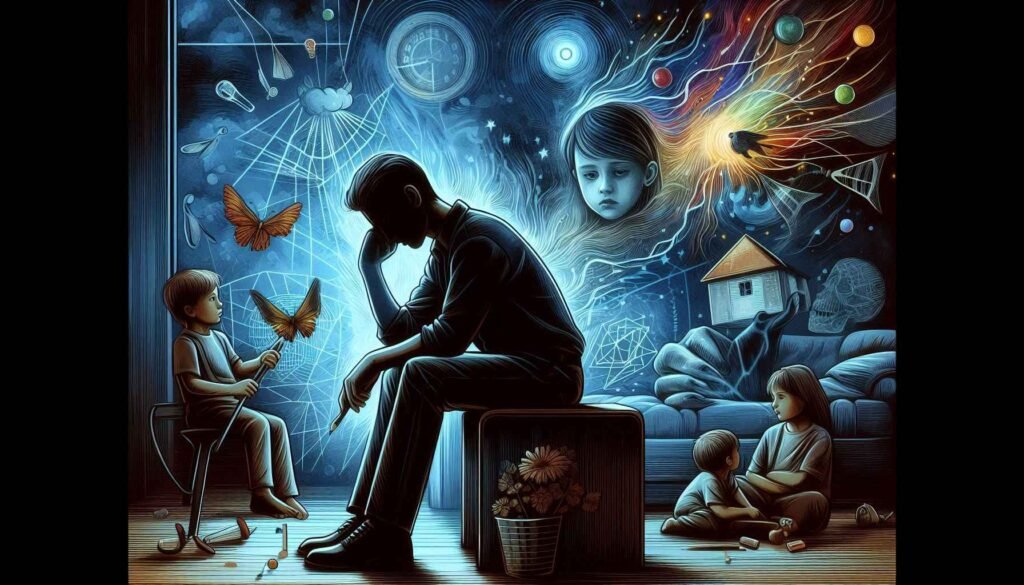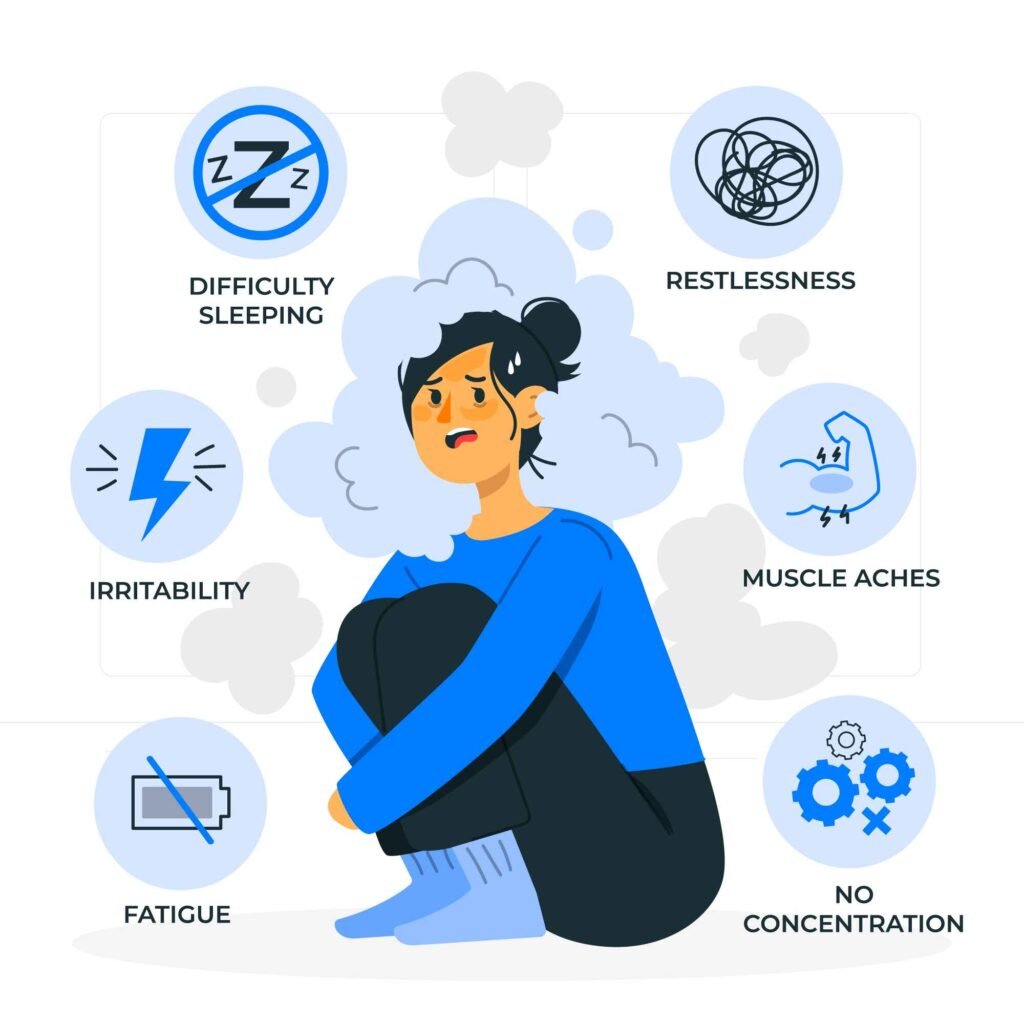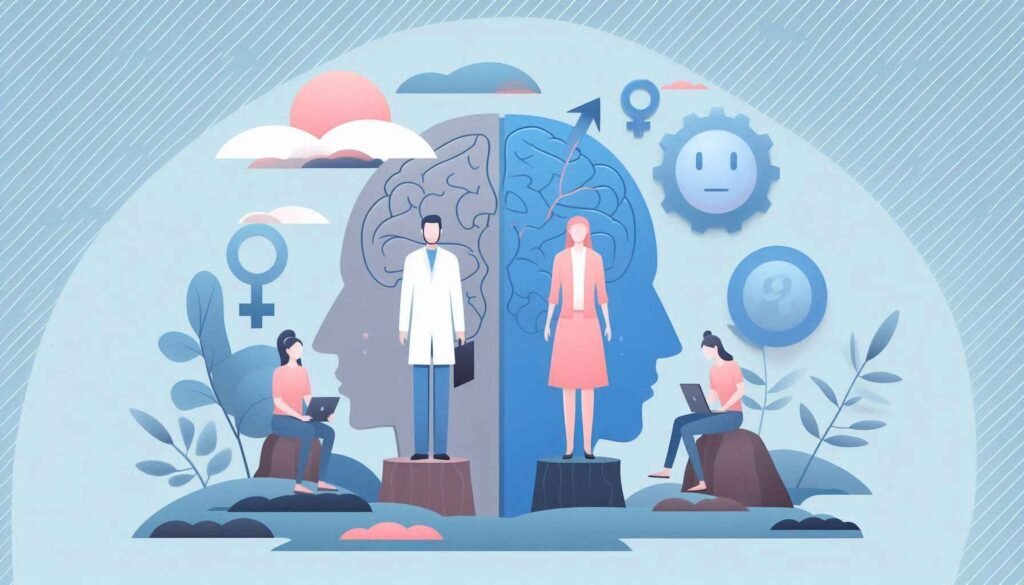
The Impact of Childhood Trauma on Adult Mental Health: Unraveling the Long-Term Effects
Childhood is often seen as a time of innocence, growth, and discovery. Yet for many, it can also be a period marked by trauma. Whether it’s emotional, physical, or psychological, childhood trauma leaves lasting scars that often manifest in adulthood. The emotional echoes of these experiences can deeply affect a person’s mental and physical health well into their adult years. This post delves into the profound impact of childhood trauma on adult mental health, exploring the complexities of its aftermath, and offering insight into healing and recovery.
What Is Childhood Trauma?
Childhood trauma refers to distressing experiences that occur during the formative years. This can include a wide range of events, such as:
- Physical or Emotional Abuse – Repeated exposure to harmful actions that cause physical or emotional pain.
- Neglect – A failure to meet a child’s basic needs, including emotional and physical care.
- Domestic Violence – Witnessing or experiencing violence in the household.
- Sexual Abuse – Any form of sexual interaction imposed on a child.
- Natural Disasters, War, or Accidents – Traumatic experiences caused by external events that instill fear and insecurity.
- Parental Loss or Separation – The death of a parent, divorce, or extended separation from a caregiver.
These traumatic experiences can leave children with feelings of fear, helplessness, and confusion, creating emotional scars that linger well into adulthood. Trauma can disrupt a child’s emotional development, leading to long-term mental health issues if not addressed.
How Trauma Affects Brain Development
Childhood trauma doesn’t just impact emotions—it changes the brain. The brain’s primary function during childhood is growth and development, forming the neural pathways that will govern a person’s behavior, cognition, and emotional regulation. Trauma disrupts this process by triggering the brain’s stress response systems.
The amygdala, responsible for managing fear and emotional reactions, becomes hyperactive, while the prefrontal cortex, which handles decision-making and emotional regulation, becomes underdeveloped. This imbalance can lead to increased anxiety, impulsivity, and difficulty managing emotions in adulthood.
Additionally, trauma can affect the hypothalamic-pituitary-adrenal (HPA) axis, which controls the body’s response to stress. Chronic stress from trauma can cause this system to remain in overdrive, making individuals more susceptible to mental health issues like anxiety, depression, and post-traumatic stress disorder (PTSD).
Mental Health Disorders Linked to Childhood Trauma
The psychological impact of childhood trauma can lead to a wide range of mental health issues. Here are some of the most common conditions linked to early adverse experiences:
1. Depression
Adults who experienced trauma as children are at a higher risk of developing depression. The feelings of worthlessness, hopelessness, and sadness that often accompany trauma can linger into adulthood, making it difficult for individuals to find joy or purpose in their daily lives.
2. Anxiety
Childhood trauma often leaves individuals with a heightened sense of fear and unease. This can manifest as anxiety in adulthood, where they may constantly feel on edge, avoid certain situations, or experience panic attacks. The body’s overactive stress response plays a significant role in maintaining these anxious feelings.
3. Post-Traumatic Stress Disorder (PTSD)
PTSD is a direct consequence of unresolved trauma. Adults with childhood trauma may relive their distressing experiences through flashbacks, nightmares, or intrusive thoughts. They may also avoid situations that remind them of the trauma and experience emotional numbness or heightened sensitivity to triggers.
4. Attachment Disorders
Trauma can significantly disrupt a child’s ability to form healthy attachments. Adults with unresolved trauma may have difficulty forming close, trusting relationships or may develop codependent or avoidant behaviors in romantic and social interactions. The fear of abandonment or betrayal often plays a key role in these dysfunctional relationship patterns.
5. Personality Disorders
In some cases, childhood trauma can contribute to the development of personality disorders such as borderline personality disorder (BPD). Individuals with BPD often struggle with intense emotions, unstable relationships, and a deep-seated fear of rejection or abandonment, all of which can be traced back to early traumatic experiences.
Physical Health Consequences of Trauma
The effects of childhood trauma aren’t just psychological—they can also impact physical health. Research has shown that trauma can increase the risk of chronic illnesses such as:
- Chronic Pain: Conditions like fibromyalgia and migraines are more common in those who have experienced trauma, likely due to the body’s heightened stress response.
- Autoimmune Disorders: The constant activation of the stress response system can weaken the immune system, making trauma survivors more susceptible to autoimmune diseases.
- Cardiovascular Issues: Childhood trauma is associated with an increased risk of heart disease, hypertension, and stroke.
- Obesity and Diabetes: Trauma can lead to unhealthy coping mechanisms, such as emotional eating, which in turn increases the risk of obesity and related conditions like diabetes.
These physical consequences highlight the mind-body connection and how deeply trauma can affect an individual’s overall health.
The Role of ACEs (Adverse Childhood Experiences)
The Adverse Childhood Experiences (ACE) study is one of the most comprehensive studies that links childhood trauma to long-term health outcomes. The ACE questionnaire asks individuals about their exposure to various forms of trauma, such as abuse, neglect, or household dysfunction, and assigns a score based on the number of traumatic experiences.
A higher ACE score correlates with a higher risk of developing mental health disorders, chronic diseases, and even substance abuse issues. Understanding the ACE score has helped professionals recognize the long-term effects of trauma and the importance of early intervention in preventing these outcomes.
Healing and Recovery from Childhood Trauma
While the effects of childhood trauma can be profound, healing is possible. Trauma survivors can learn to manage their emotional responses and develop healthier coping strategies through therapy and support. Here are some effective methods for addressing trauma:
1. Cognitive Behavioral Therapy (CBT)
CBT is one of the most widely used forms of therapy for trauma survivors. It helps individuals identify and change negative thought patterns and behaviors associated with their trauma. Through CBT, individuals can learn healthier ways to manage their emotions and reactions to stress.
2. Eye Movement Desensitization and Reprocessing (EMDR)
EMDR is a trauma-focused therapy that helps individuals process traumatic memories by using bilateral stimulation, such as eye movements, to reduce the emotional intensity of these memories. EMDR has been shown to be particularly effective in treating PTSD.
3. Mindfulness and Meditation
Mindfulness practices, such as meditation and breathing exercises, can help trauma survivors stay present and manage their emotions. By focusing on the present moment, individuals can break free from the cycle of negative thoughts and feelings associated with their past trauma.
4. Support Groups and Peer Counseling
Talking about trauma with others who have had similar experiences can be incredibly therapeutic. Support groups and peer counseling provide a safe space for individuals to share their stories, learn from others, and build a sense of community.
Breaking the Cycle: Preventing Trauma in Future Generations
Understanding the impact of childhood trauma not only helps individuals heal but also plays a crucial role in breaking the cycle of trauma. Parents, caregivers, and communities can work together to provide safe, nurturing environments for children, reducing the likelihood of future trauma. Early intervention, therapy, and support systems can help children process their experiences in a healthy way, minimizing the long-term effects.
Conclusion
Childhood trauma leaves a lasting impact on mental, emotional, and physical health, shaping the way individuals navigate adulthood. However, through therapy, support, and resilience, it is possible to heal from the scars of the past. By acknowledging the effects of trauma and seeking help, individuals can reclaim their lives and build a future rooted in strength and emotional well-being. Remember, healing is not a destination but a journey—one that can lead to growth, self-compassion, and ultimately, peace.



